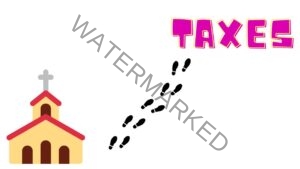The VAT law on information technology in VAT Administration is effective from 9th June 2005.
Scope
- Introduction.
- Information technology offences in VAT administration:
- Unauthorized access to computerized tax systems.
- Unauthorized improper use of computerized tax systems.
- Interference with computerized tax systems.
Introduction
This refers to any computerized tax system which includes:
- Software.
- Hardware.
Examples:
- Electronics tax registers (ETRs).
- Electronic signature devises (ESD).
- i-Tax platform.
- Laptops,
- Desktops,
- Accounting software e.g. Quick books, Sage
- Enterprise Resources Solutions e.g. SAPs, Oracle etc.
The VAT law on information technology in VAT Administration is effective from 9th June 2005. The law requires that all VAT-registered persons must buy some specified machines. For example, ETR machines sold by KRA approved vendors.
Information Technology Offences in VAT Administration
There are three broad categories:
- Unauthorized access to computerized tax systems.
- Improper use of computerized tax systems.
- Interference with computerized tax systems.
The following is a brief explanation of the three offences.
a. Unauthorized Access To Computerized Tax Systems
This is when a person knowingly and without authority:
- Gains access to any computerized tax system or
- Attempts to gain access to any computerized tax system.
If the person is convicted in a Court of law, the penalties are as follows:
a) If an individual:
– a fine not exceeding kshs 400,000.
– an imprisonment term not exceeding 2 years.
b) If a corporate body – a fine not exceeding kshs 1 million.
b. Improper use of Computerized Tax Systems
Under this category, it is an offence to lawful access a computerized tax system and:
- knowingly use any information accessed for purposes that are not authorized (or)
- Knowingly disclose and information for a purpose that is not authorized.
If convicted in a Court of law, the following are the charges:
- A person:
-
- A fine not exceeding kshs 400,000.
- An imprisonment term not exceeding 2 years.
- A corporate body – fine not exceeding kshs 1 million.
c. Interference with Computerized Tax Systems
Under this category, a person commits an offence when they knowingly:
a) Falsifies any record or information stored in any computerized tax system. The person will have gained access either illegally or legally.
b) Damages or impairs any computerized tax systems (note does not have to gain access).
c) Damages or impairs any duplicate tape, disc or other medium on which any information obtained from a computerized tax system is held or stored otherwise than with the permission of Commissioner.
If the person is convicted in a Court of law, the charges will be a follows:
- A fine not exceeding kshs 800,000.
- An imprisonment term not exceeding 3 years.
- Both a fine not exceeding kshs 800,000 and/or imprisonment not exceeding 3 years.
Feel free to send us tax and investments in Kenya questions or topics via email taxkenya@gmail.com that you would wish to be covered in this Website.
Disclaimer
This post is for general overview and guidance and does not in any way amount to professional advice. Hence, www.taxkenya.com, its owner or associates do not take any responsibility for results of any action taken on the basis of the information in this post or for any errors or omissions. Kenyan taxpayers must always rely on the most current information from KRA. Tax industry in Kenya is very dynamic.






